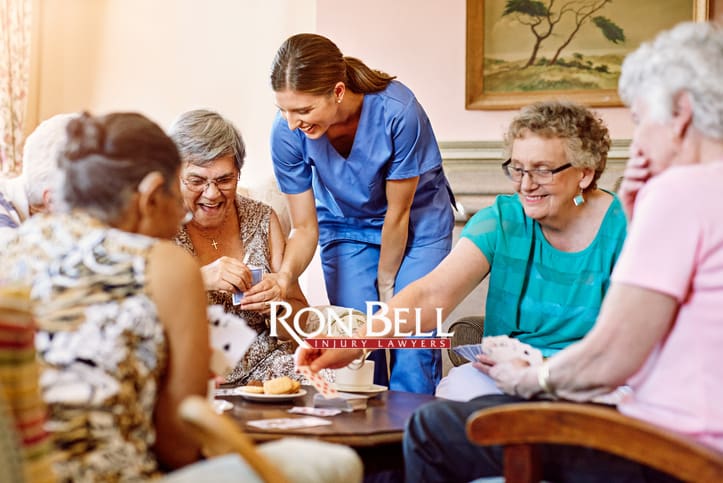Choosing the Right Nursing Home for Your Loved One

Elder abuse is a serious and underrated public health problem. Reports of such abuse in elder care facilities may cause distress to the family members of the residents of such homes. In this article, we provide practical information that will help you to identify and avoid abuse risks and choose the best nursing home for your elderly loved one.
Elder abuse – which can be defined as “a single or repeated act, or lack of appropriate action, occurring within any relationship where there is an expectation of trust, which causes harm or distress to an older person” – is a deeply troubling public health problem.
While most governmental agencies admit that it is difficult to put an estimate on the number of individual abuse cases in the U.S., it is generally acknowledged that the problem affects hundreds of thousands, if not millions, of American adults over the age of 60 every year. Sadly, as reported by the World Health Organization, on the international level, only 1 in 24 cases of elder abuse is reported which not only makes the scope of the problem difficult to gauge but it also limits the protective measures agencies and individuals can take to protect the vulnerable elderly residents of our country.
Even though – as reported by the Centers for Disease Control and Prevention (CDC) – 1 out of every 10 people aged 60 and older experience abuse at home, it seems that seniors are at particular risk of suffering various forms of neglect and exploitation in institutions such nursing homes, and other long-term care facilities.
For example, one study has shown that instances of abuse were reported in 1 in 3 nursing homes in the United States. This can be particularly disheartening for families whose circumstances don’t permit them to provide continuous, in-home care for their elderly relative and must rely on a care facility to ensure their needs are properly met.
If this is the case in your family, don’t lose heart. Elder abuse, though common, doesn’t happen in all nursing homes. In fact, the majority of such institutions are adequately staffed and equipped to provide professional and compassionate care to your elderly ones. In this article, you’ll find practical advice on how to choose the right nursing home for your loved one.
Consider the Location
Before you focus on the particularities of any nursing home, you should first narrow down the options you’ll consider based on location. A facility closer to where you live will allow you to visit your relative more often and also react faster if you receive any alarming reports. If you’re looking for a specialized facility due to a specific condition your elderly family member has and there are none in your area, you should give priority to those that are close to where another trusted family member lives.
Consider the Needs of Your Loved One
When you think about the unique needs of your family member, his or her physical needs likely come to mind first. It is important that your loved one has reliable access to quality healthcare, can enjoy nutritious meals, and feel comfortable in their room and you should by no means compromise in those areas. However, their psychological and emotional needs are equally important. Consider whether your family member will truly feel comfortable in the place you’re considering. If you’re visiting the facility together – be attentive to any verbal or non-verbal clues your loved one may give you about how they feel about their prospective new home.
Use the Nursing Home Checklist
The Nursing Home Checklist is a resource provided by Medicare.gov that can help you decide whether the nursing home you’re visiting is up to an acceptable standard. Some of the checklist’s detailed questions include the following:
- Are the residents clean, well groomed, and appropriately dressed for the season or time of day?
- Is the nursing home free from overwhelming unpleasant odors?
- Does the nursing home have good lighting?
This list can help you to consider things you may not have thought to pay attention to and to accurately gauge the quality of care your elderly loved one is likely to receive there. Using this or a similar checklist will make your search for the right nursing home both more focused and more productive, and can help you to avoid putting your family member’s physical or psychological health at risk.
Learn to Recognize the Signs of Elder Abuse
Unfortunately, elder abuse may happen even in the facilities that give the best impression and enjoy the best reputation. Learning to recognize the symptoms of abuse is a responsibility that those with a loved one in a nursing facility should take seriously. For a more in-depth look at how to recognize elder abuse, see an earlier article we published on the topic, 6 Common Signs of Nursing Home Abuse
Common signs of abuse include:
- weight loss and malnutrition
- falls
- Infections
- changes in the mood
It is critical to take action immediately if you notice any of these symptoms. Remember that the law protects elders from abuse and perpetrators can be charged with both criminal and civil charges. If your family member has been injured as a result of neglect or abuse in a nursing home, you might be able to pursue a personal injury lawsuit and claim financial compensation for the injuries.
Why Choose Ron Bell Injury Lawyers?
We Get Results!
